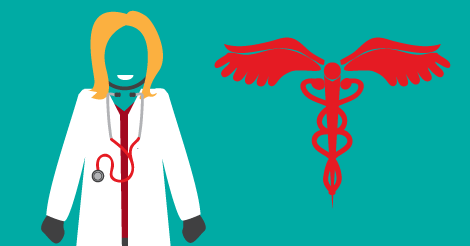We have some advice for you.
 If you’re submitting an application to a Medical School through AMCAS (The American Medical College Application Service), you’ve likely already put a considerable amount of time and thought into your decision to do so.
If you’re submitting an application to a Medical School through AMCAS (The American Medical College Application Service), you’ve likely already put a considerable amount of time and thought into your decision to do so. The best way to reflect this high level of commitment is to write a memorable and succinct “Personal Comments” essay.
Your responses to these questions will give admissions insight into who you are, what’s important to you, and where you will go from here. Ultimately, the purpose of the Personal Comments essay is to humanize your application and distinguish you from other similarly qualified applicants. Acceptance rates at top U.S. medical schools have been steadily declining over the last decade, which means it’s tougher than ever to secure a spot at a competitive med school.
Luckily for you, the written portion of the application is an opportunity to further differentiate you in the eyes of admissions officers. Think of it as an introduction; let admissions get a peek at the future healthcare provider behind the quantitative data.
We recommend starting by making a list of the most important aspects of your identity, goals, and/or background. This way, you have a blueprint to follow when you’ve deemed it time to put pen to paper (fingers to keyboard?) (stethoscope to chest??).
The most successful AMCAS essays will not repeat information provided elsewhere in the application. Instead, they will reveal new information to an admissions committee about the applicant. The more memorable your essay, the better!
This essay, unlike many other optional essays, is truly optional. If you haven’t faced a hardship or challenge that impacted your academics or educational pursuits, this prompt is not for you.
If, however, you have something to address here (a drop in your GPA, a gap in your resume, etc.), we advise you to write about the challenges and hardships you have faced in ways that emphasize resilience, responsibility, and growth.
With an essay character limit of 5,300 (roughly equals a page), brevity is paramount. Do your best to avoid spending too many words on explaining what has happened in the past, since admissions is mostly interested in your future (hopefully at their school!).
Once you have your outline ready, or at least an idea of what you want to address in your essay, we recommend writing everything down that comes to mind, stream-of-consciousness style. Trust us: it is so much easier to edit subpar drafts than it is to develop a blank page! You don’t need to write a stellar essay on the first go; you can always step away and revisit your writing at a later time (as long as you don’t have a deadline lurking).
The final piece of advice we want to leave you with is this: share your draft with someone whose opinion you trust. Whether it’s one of our expert Advisors, your loved ones, your peers, or your mentors, it’s incredibly helpful to get a second opinion before you submit! A pair of fresh eyes can often reveal opportunities for both expansion and compression, and is, at the very least, a new lens in which to view your own submission.